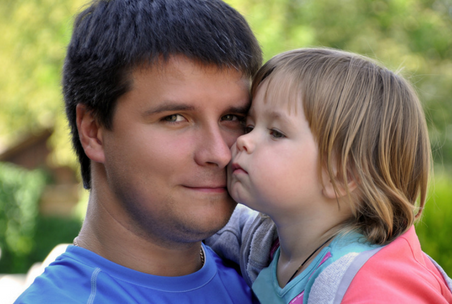Latest PACT Report Provides Great Advice for Fatherhood Programs
2 min read
Date Published: 06/05/2018
Last Updated: 06/05/2018
National Fatherhood Initiative Blog / Latest Articles
2 min read

One of the most significant ongoing studies of responsible fatherhood programs is the Parents and Children Together (PACT) evaluation. This in-depth qualitative and quantitative evaluation of four responsible fatherhood programs that serve primarily low-income, noncustodial dads in different parts of the country focuses on:
I have blogged about two findings of this study—released as briefs—and how you can use the findings to improve your work with dads. Click here to read my post on why using an “open entry” program is a bad idea. Click here to ready my post on how dads in these four programs view co-parenting.
The Office of Planning, Research, and Evaluation at the U.S. Department of Health and Human Services, which funds the evaluation, recently released a comprehensive report on the qualitative portion of it. The purpose of the report is to examine the characteristics and views of dads who voluntarily enrolled in the fatherhood programs, how the organizations designed and implemented the programs, and how dads responded to the services offered. In doing so, it seeks to answer these three questions:
In answering these questions, the report provides:
The report includes the following recommendations that you can use to improve your work with dads, especially low-income, noncustodial dads. Many of these recommendations might not be a surprise to you — you might have even implemented many of them. Even so, you now have excellent research that supports your implementation of them.
To increase overall participation, consider offering daily cohort-based services, rather than weekly open-entry services, especially for unemployed dads.
To engage dads in workshops, employ program graduates and other dads who have overcome challenges similar to those of participants.
Incorporate a focus on developing dads’ foundational skills (e.g. parenting skills), but also consider strategies for addressing dads’ substance abuse and mental health issues.
To help dads build on and apply parenting skills, identify ways to provide assistance with visitation rights, parenting time agreements, or shared custody.
To maximize the dosage of healthy marriage services that dads receive, consider the potential effects of service delivery structure, messaging, and curriculum content.
To ensure strong participation in economic stability services, consider having dads engage in self-directed tailored activities each day until they obtain employment.
Explore opportunities to increase assistance for child support modifications.
Starting on page 50, the report provides more detail on each of these recommendations so that you can determine how applicable each of them is for your program. I encourage you to read the entire report and share it with others in your organization who work with dads. I will continue to share results of the PACT evaluation as additional findings become available.
How much attention do you pay to the research being conducted on responsible fatherhood programs?
What have you gleaned from research on fatherhood programs to improve your work with dads?
Date Published: 06/05/2018
Last Updated: 06/05/2018
Download this free guide for a proven 7-step roadmap—from making the case and securing funding for your program, to launching and measuring real results!


Train Your Staff
Fatherhood Programs
Fatherhood Data
© 2026 National Fatherhood Initiative®. All rights reserved.